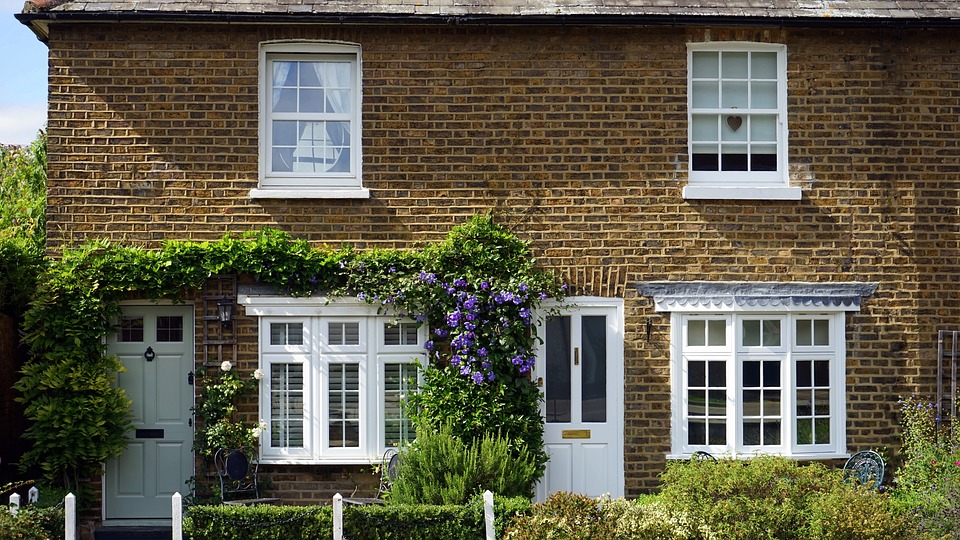UK house prices grew 2.6 per cent year on year in March, but fell compared to the month before, according to data released today.
The value of the average UK home hit £233,181 last month, after growing 1.6 per cent between January to March compared to the three months to the end of December.
But house prices dropped 1.6 per cent from February to March, according to Halifax’s latest house price index, to offset a 5.9 per cent surge the bank reported last month that experts viewed very sceptically.
Russell Galley, Managing Director, Halifax, said: “This reduction partly corrects the significant growth seen last month and again demonstrates the risk in focusing too heavily on short-term, volatile measures.
“Industry-wide figures show that the number of mortgages being approved remains around 40 per cent below pre-financial crisis levels, and we know that lower levels of activity can lead to bigger price movements.”
While young people struggle to save up deposits, the combination of fewer homes for sale and fewer buyers has propped up growth, Galley added, underpinning the annual price rise.
However, these factors in addition Brexit impasse currently deadlocking parliament continue to weigh on the housing market, and London house prices in particular.
“These conflicting challenges, when combined with the ongoing uncertainty around Brexit, have had an impact across the country but most notably in London, meaning that we continue to expect subdued price growth for the time being,” Galley said.
Drop corrects ‘bizarre’ Halifax house price rise
Howard Archer, chief economic adviser to the EY Item Club, said last month’s drop corrects the “eye-watering and frankly bizarre” six per cent surge in house prices Halifax suffered criticism over in February.
That contrasted heavily with Nationwide’s own measure of 0.4 per cent growth.
Archer again criticised Halifax’s comparatively volatile measure, pointing to other sharp rises of three per cent in January and 2.5 per cent in December.
“The overall impression is that the housing market is currently soft as it is being hampered by challenging conditions with buyer caution currently being reinforced by heightened Brexit and economic uncertainties,” Archer added.
“The overall picture [is] being dragged down by the weakness in London and the south east.”
Lack of homes hurting buyers’ options
Brian Murphy, head of lending for Mortgage Advice Bureau, said Brexit uncertainty is too easy an answer for the lower level of mortgage approvals.
“The lower levels of homes currently available could be another obvious contributory factor, as this somewhat reduces buyer choice,” he said.
“However, those who are moving home at the moment are likely to find that lender competition has seen rates remain low, providing a silver lining in otherwise cloudy times.”
Lucy Pendleton, founder director of independent estate agents James Pendleton, concurred, saying: “It’s no surprise to see prices fall back this month as low stock levels and general buyer malaise plagues the market.”
London lows continue to drag down UK housing market
Pendleton added that the more reliable annual rise in house prices shows that regions are underpinning the rise, while London lags behind
“There are few signs of improvement in the number of transactions across the capital,” she warned.
“Buyers are understandably showing caution while we remain in this period of limbo, possibly in the belief there will be better opportunities to broker a deal after we leave the EU.”
Sam Mitchell, boss of online estate agent Housesimple, said the market almost looks healthy without London.
“If you take London out of the equation, we are seeing more normal market conditions in other parts of the country, particularly in the north, with healthy levels of transactions during this early spring period, when traditionally there’s more activity in the market,” he said.
Jonathan Hopper, managing director of Garrington Property Finders, said buyers who are committed to London and the southeast are doubling down as they realise momentum is with them.
“Buyers are feeling increasingly emboldened and we’re seeing some very aggressive offers succeed – with sellers who need to move quickly having no choice but to accept big price reductions,” he warned.
Brexit uncertainty continues to weigh down UK housing market
The latest UK house prices show Brexit is still harming the market despite record employment, wage increases and low interest rates, said property lender Octane Capital.
Boss Jonathan Samuels said: “Brexit has torpedoed consumer confidence.
“Strong economic fundamentals count for nothing when the UK body politic is in such fundamental disarray.
“A drought of buyers and lack of homes for sale has been the defining narrative of the property market for the past two years.
“Prospective sellers and buyers alike are holding back as an unprecedented political drama plays out. For most people, the inclination is to play it safe rather than make a move.”
Jeremy Leaf, north London estate agent and a former Rics residential chairman, said the UK housing market is holding up better than expected under the pressure of Brexit, but that the prolonged political problems are hurting activity.
“On the ground, we are seeing more buying activity in the buildup to the traditionally busier spring market but it is patchy, encouraging in some areas, disappointing in others, even sometimes very close to one another,” he said.
“On the other hand, many sellers are still cautious, awaiting a small sign at least that their Brexit nightmare will soon be over and they will have more confidence about taking on additional debt.”
By Joe Curtis
Source: City AM






